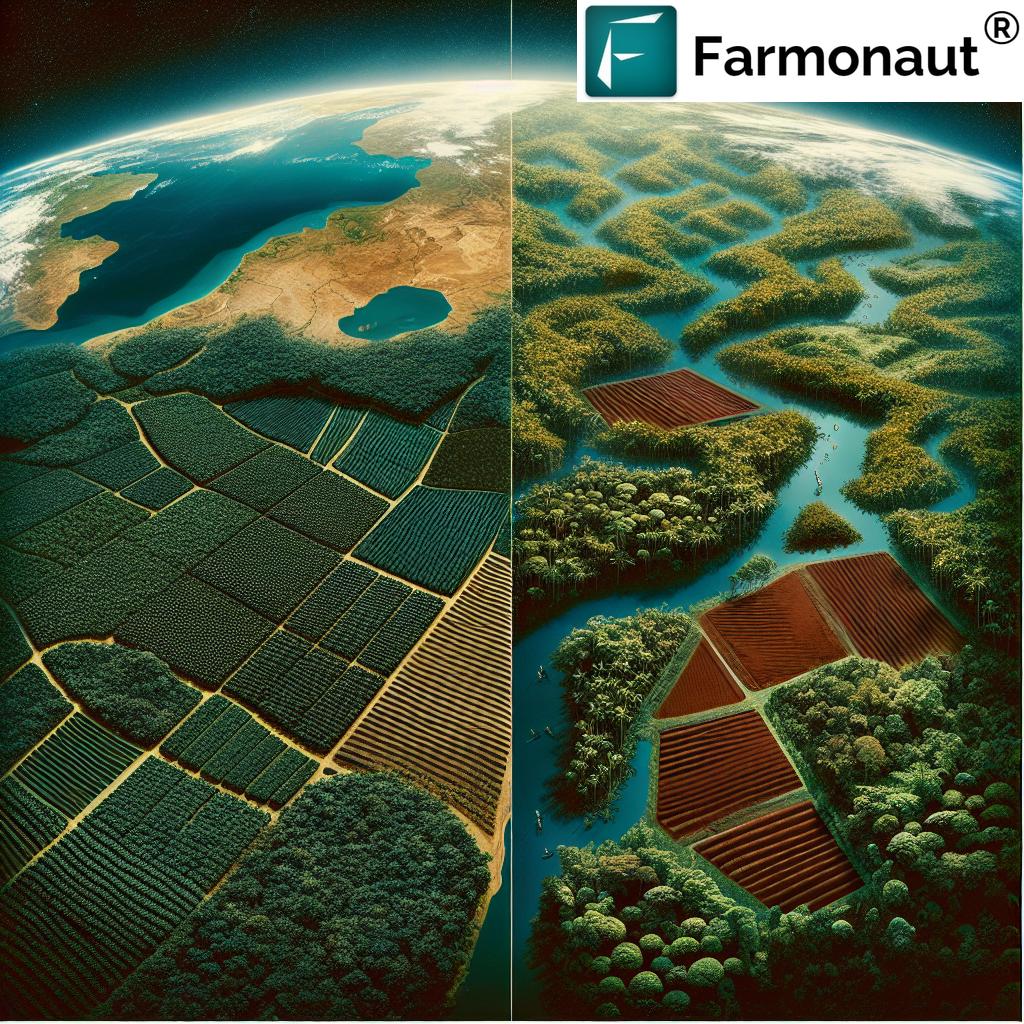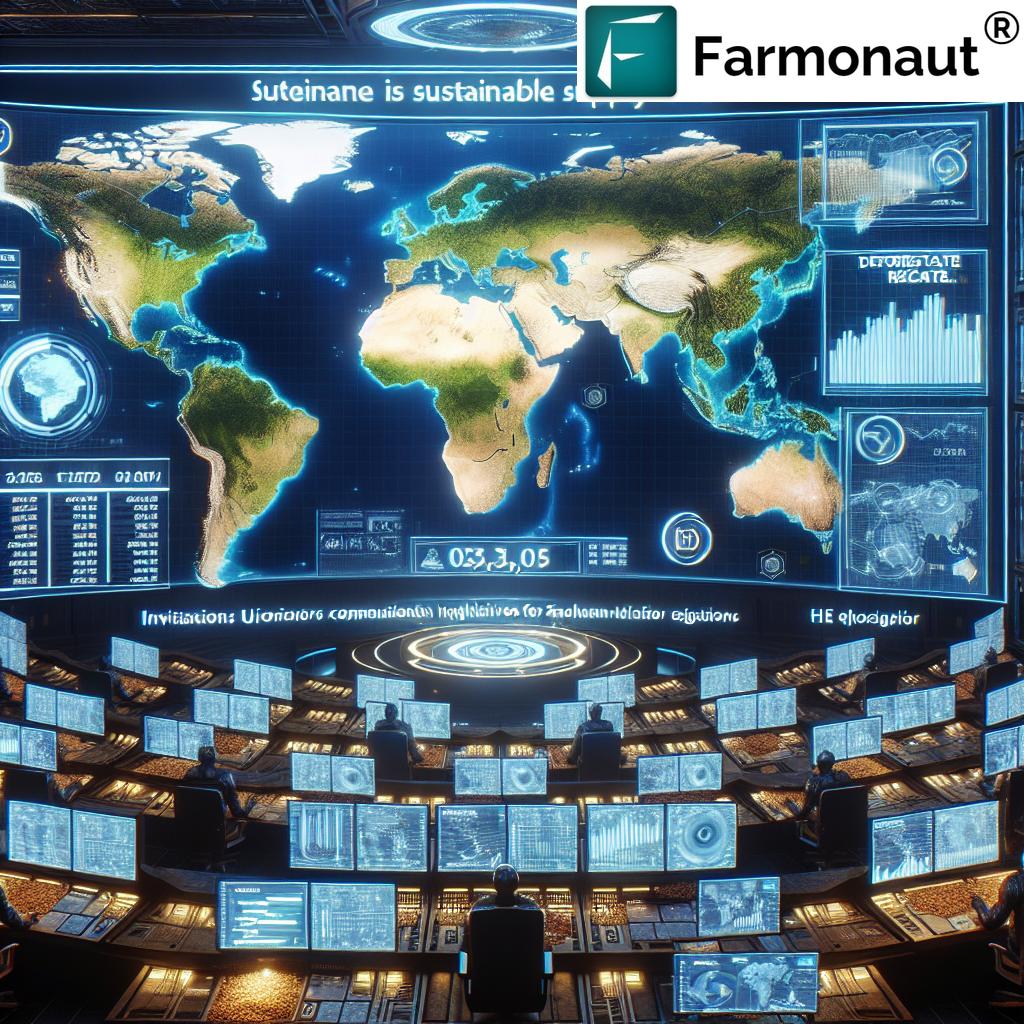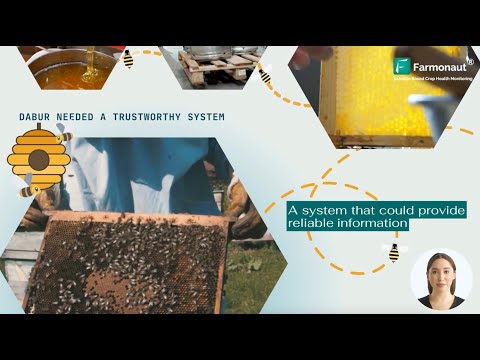EU Deforestation Regulation: Transforming Global Supply Chains for Sustainable Agriculture in Africa and Americas

“The EU Deforestation Regulation impacts global commodity trading across 3 continents: Africa, Americas, and Asia.”
In an era where environmental concerns are at the forefront of global discussions, the European Union has taken a significant step towards combating deforestation and promoting sustainable agriculture worldwide. The EU Deforestation Regulation (EUDR) is set to revolutionize the way we approach commodity trading and supply chain management across continents. In this comprehensive blog post, we’ll explore the far-reaching impact of EUDR on agriculture, with a particular focus on the coffee and cocoa sectors in Africa and the Americas.
Understanding the EU Deforestation Regulation
The EUDR is a groundbreaking piece of legislation aimed at ensuring that products sold in the EU market do not contribute to deforestation or forest degradation. This regulation covers a wide range of commodities, including coffee, cocoa, palm oil, soy, beef, and wood products. By implementing strict due diligence requirements, the EU aims to transform global supply chains and promote responsible business conduct.
- Key objectives of EUDR:
- Reduce EU-driven deforestation and forest degradation
- Promote sustainable and deforestation-free supply chains
- Enhance transparency and traceability in commodity trading
As we delve deeper into the implications of EUDR, it’s crucial to understand how this regulation is reshaping agricultural practices and trade relationships across different regions.
Impact on Coffee and Cocoa Sectors in Africa
Africa, home to some of the world’s largest coffee and cocoa producers, is at the forefront of adapting to the EUDR. Countries like Côte d’Ivoire, Ghana, Ethiopia, and Uganda are implementing significant changes to ensure their agricultural practices align with the new regulations.
Côte d’Ivoire and Ghana: Cocoa Sustainability Initiatives
Côte d’Ivoire and Ghana, responsible for producing about 60% of the world’s cocoa, are taking bold steps to transform their cocoa sectors:
- Implementation of national traceability systems
- Promotion of agroforestry practices
- Support for smallholder farmers in adopting sustainable methods
These initiatives not only aim to comply with EUDR but also to improve the livelihoods of millions of cocoa farmers while preserving the rich biodiversity of West African forests.
Ethiopia and Uganda: Revolutionizing Coffee Production
Ethiopia, the birthplace of coffee, and Uganda, a significant coffee exporter, are adapting their coffee sectors to meet EUDR requirements:
- Development of shade-grown coffee practices
- Investment in sustainable water management systems
- Promotion of organic farming methods
These changes are not only ensuring compliance but also enhancing the quality and uniqueness of African coffee, potentially leading to premium prices in the global market.
As we witness these transformations in Africa, it’s important to note the role of technology in facilitating compliance with EUDR. Companies like Farmonaut are at the forefront of this technological revolution, offering innovative solutions for sustainable agriculture. Through their satellite-based monitoring systems, farmers and businesses can track deforestation, assess crop health, and manage resources more efficiently.
The Americas: Balancing Conservation and Agricultural Growth
Across the Atlantic, countries in North and South America are also grappling with the challenges and opportunities presented by EUDR. From the vast coffee plantations of Brazil to the diverse agricultural landscapes of Colombia and Argentina, the Americas are witnessing a shift towards more sustainable practices.
Brazil: Leading the Way in Sustainable Soy and Coffee Production
Brazil, a major exporter of soy and coffee, is implementing comprehensive strategies to comply with EUDR:
- Expansion of the Amazon Soy Moratorium to other biomes
- Implementation of advanced satellite monitoring systems
- Promotion of regenerative agriculture practices
These efforts not only address deforestation concerns but also position Brazil as a leader in sustainable commodity production.
Colombia and Chile: Innovating for Sustainability
Colombia, known for its premium coffee, and Chile, with its diverse agricultural exports, are embracing innovation to meet EUDR requirements:
- Development of blockchain-based traceability systems
- Investment in precision agriculture technologies
- Collaboration with indigenous communities for sustainable forest management
These initiatives showcase how countries can leverage technology and traditional knowledge to create sustainable agricultural models.

“EUDR focuses on 2 major agricultural sectors: coffee and cocoa, transforming sustainable supply chains worldwide.”
Challenges and Opportunities in Creating Sustainable Agricultural Practices
While the EUDR presents significant challenges for global agriculture, it also opens up numerous opportunities for innovation and sustainable growth. Let’s explore some of the key challenges and the innovative solutions being developed to address them.
Challenges:
- Implementing traceability systems in complex supply chains
- Supporting smallholder farmers in transitioning to sustainable practices
- Balancing environmental conservation with economic growth
- Addressing potential market disruptions and trade imbalances
Opportunities:
- Development of new technologies for sustainable agriculture
- Creation of premium markets for deforestation-free products
- Enhanced collaboration between producers, traders, and consumers
- Improved livelihoods for farmers through sustainable practices
One of the most promising developments in addressing these challenges is the integration of advanced technologies in agriculture. For instance, Farmonaut’s satellite-based crop health monitoring system provides real-time insights into vegetation health, soil moisture levels, and other critical metrics. This technology empowers farmers to make informed decisions about irrigation, fertilizer usage, and pest management, ultimately optimizing crop yields while minimizing environmental impact.
The role of artificial intelligence in sustainable agriculture cannot be overstated. Farmonaut’s Jeevn AI Advisory System, for example, delivers personalized farm advisory services, weather forecasts, and expert crop management strategies. By analyzing satellite data and other inputs, this AI-driven tool helps farmers improve productivity while adhering to sustainable practices.
The Role of Technology in Achieving EUDR Compliance
Technology plays a pivotal role in helping countries and businesses comply with EUDR requirements. From satellite monitoring to blockchain-based traceability, innovative solutions are transforming how we approach sustainable agriculture and supply chain management.
Satellite Monitoring and Remote Sensing
Satellite technology is revolutionizing the way we monitor deforestation and land use changes. Companies like Farmonaut are at the forefront of this technological revolution, offering advanced satellite-based farm management solutions. These tools allow for:
- Real-time monitoring of forest cover and land use changes
- Early detection of deforestation activities
- Assessment of crop health and productivity
- Efficient resource management and allocation
By leveraging these technologies, countries and businesses can ensure compliance with EUDR while optimizing their agricultural practices.
Blockchain for Supply Chain Traceability
Blockchain technology is emerging as a powerful tool for ensuring transparency and traceability in agricultural supply chains. Farmonaut’s blockchain-based product traceability solution, for instance, enables:
- End-to-end tracking of products from farm to consumer
- Verification of sustainable production practices
- Enhanced trust and credibility in supply chains
- Reduced risk of fraud and mislabeling
These blockchain solutions are particularly valuable for commodities like coffee and cocoa, where proving the origin and sustainability of products is crucial for EUDR compliance.
Supporting Smallholder Farmers in the Transition
One of the critical challenges in implementing EUDR is ensuring that smallholder farmers, who form the backbone of many agricultural supply chains, are not left behind. Various initiatives are being developed to support these farmers in transitioning to sustainable practices:
- Capacity building and training programs
- Access to finance for sustainable agriculture investments
- Development of farmer cooperatives and associations
- Integration of smallholders into digital platforms for improved market access
Farmonaut’s platform plays a crucial role in this aspect by making precision agriculture affordable and accessible to farmers worldwide. By providing valuable services such as real-time crop health monitoring and AI-based advisory systems, Farmonaut empowers smallholder farmers to adopt sustainable practices while improving their productivity and income.
Global Agricultural Sustainability Initiatives
The implementation of EUDR has sparked a wave of global agricultural sustainability initiatives. These projects aim to address the environmental challenges posed by agriculture while ensuring food security and economic growth. Some notable initiatives include:
- The Cocoa & Forests Initiative in West Africa
- The Amazon Soy Moratorium in Brazil
- The Global Coffee Platform’s sustainability efforts
- The Sustainable Coffee Challenge
These initiatives bring together governments, private sector actors, and civil society organizations to create comprehensive approaches to sustainable agriculture and forest conservation.
The Future of Commodity Trading in Light of EUDR
As EUDR reshapes global agricultural practices, the future of commodity trading is evolving. We can expect to see:
- Increased demand for certified sustainable products
- Development of new market mechanisms for deforestation-free commodities
- Greater emphasis on transparency and traceability in supply chains
- Emergence of innovative financing models for sustainable agriculture
These changes present both challenges and opportunities for businesses across the agricultural value chain. Companies that adapt quickly and embrace sustainable practices are likely to gain a competitive edge in the evolving market landscape.
EUDR Impact Comparison Across Regions
| Region | Primary Commodities | Estimated Deforestation Rate (%) | EUDR Compliance Challenges | Sustainable Practices Adopted | Technology Solutions Implemented | Smallholder Support Initiatives | Projected Economic Impact ($ millions) |
|---|---|---|---|---|---|---|---|
| West Africa (Côte d’Ivoire, Ghana) | Cocoa | 2.5 | Traceability, smallholder inclusion | Agroforestry, shade-grown cocoa | Satellite monitoring, blockchain | Farmer field schools, microfinance | 500-700 |
| East Africa (Ethiopia, Uganda) | Coffee | 1.8 | Certification, water management | Organic farming, shade-grown coffee | AI-driven crop advisories, IoT sensors | Cooperative development, market access programs | 300-500 |
| South America (Brazil, Colombia) | Coffee, Soy | 3.2 | Large-scale monitoring, indigenous rights | Regenerative agriculture, forest conservation | Advanced satellite imagery, big data analytics | Technical assistance, sustainable finance mechanisms | 800-1200 |
| Southeast Asia (Indonesia, Vietnam) | Palm Oil, Coffee | 4.0 | Complex supply chains, peatland conservation | Sustainable palm oil, intercropping | Drone monitoring, AI-based land use planning | Smallholder certifications, alternative livelihoods | 600-900 |
Conclusion
The EU Deforestation Regulation represents a significant shift in global agricultural practices and commodity trading. As countries and businesses adapt to these new requirements, we’re witnessing a transformation towards more sustainable and responsible supply chains. The challenges are substantial, but so are the opportunities for innovation, collaboration, and sustainable growth.
Technologies like those offered by Farmonaut are playing a crucial role in this transition, providing the tools and insights needed to implement sustainable practices at scale. From satellite monitoring to AI-driven advisories, these solutions are empowering farmers, businesses, and governments to meet the challenges of EUDR while improving agricultural productivity and environmental stewardship.
As we move forward, the success of EUDR will depend on continued collaboration between all stakeholders in the agricultural value chain. By working together and leveraging innovative technologies, we can create a future where agricultural production supports both human needs and environmental conservation.
FAQ Section
- What is the EU Deforestation Regulation (EUDR)?
EUDR is a legislation aimed at ensuring products sold in the EU market do not contribute to deforestation or forest degradation. It covers commodities like coffee, cocoa, palm oil, soy, beef, and wood products. - How does EUDR impact global agriculture?
EUDR transforms global supply chains by requiring strict due diligence, promoting sustainable practices, and enhancing transparency in commodity trading. - What role does technology play in EUDR compliance?
Technology, such as satellite monitoring, blockchain, and AI, plays a crucial role in monitoring deforestation, ensuring traceability, and implementing sustainable agricultural practices. - How are smallholder farmers supported in the transition to EUDR compliance?
Support initiatives include capacity building, access to finance, development of cooperatives, and integration into digital platforms for improved market access. - What are some challenges in implementing EUDR?
Challenges include implementing traceability in complex supply chains, supporting smallholders, balancing conservation with economic growth, and addressing potential market disruptions.
For more information on how technology can support sustainable agriculture and EUDR compliance, explore Farmonaut’s solutions:
For developers interested in integrating Farmonaut’s technology into their own solutions, check out our API Developer Docs.






